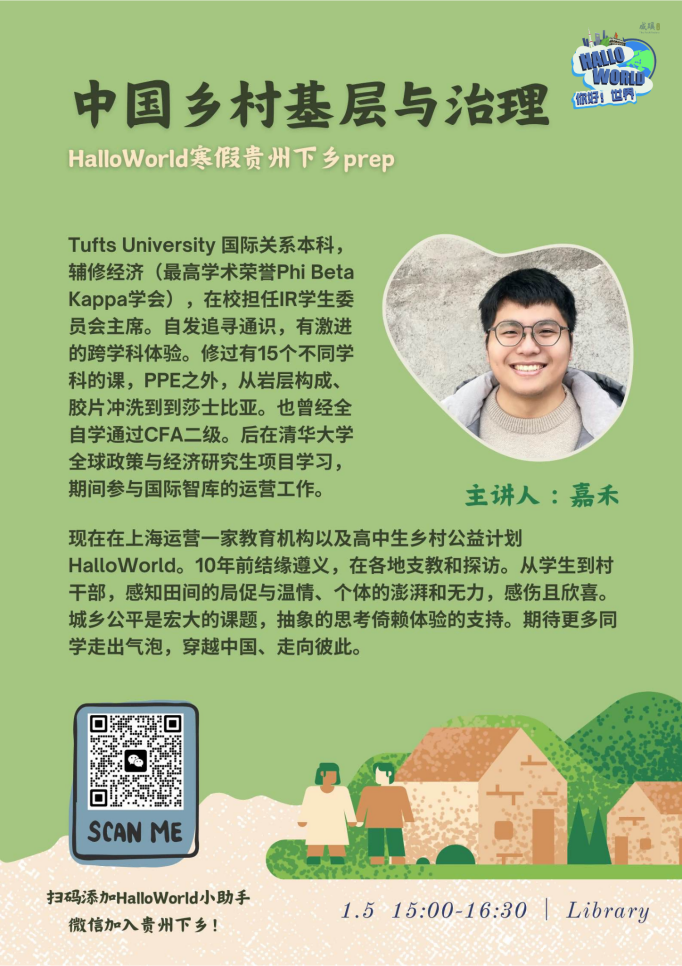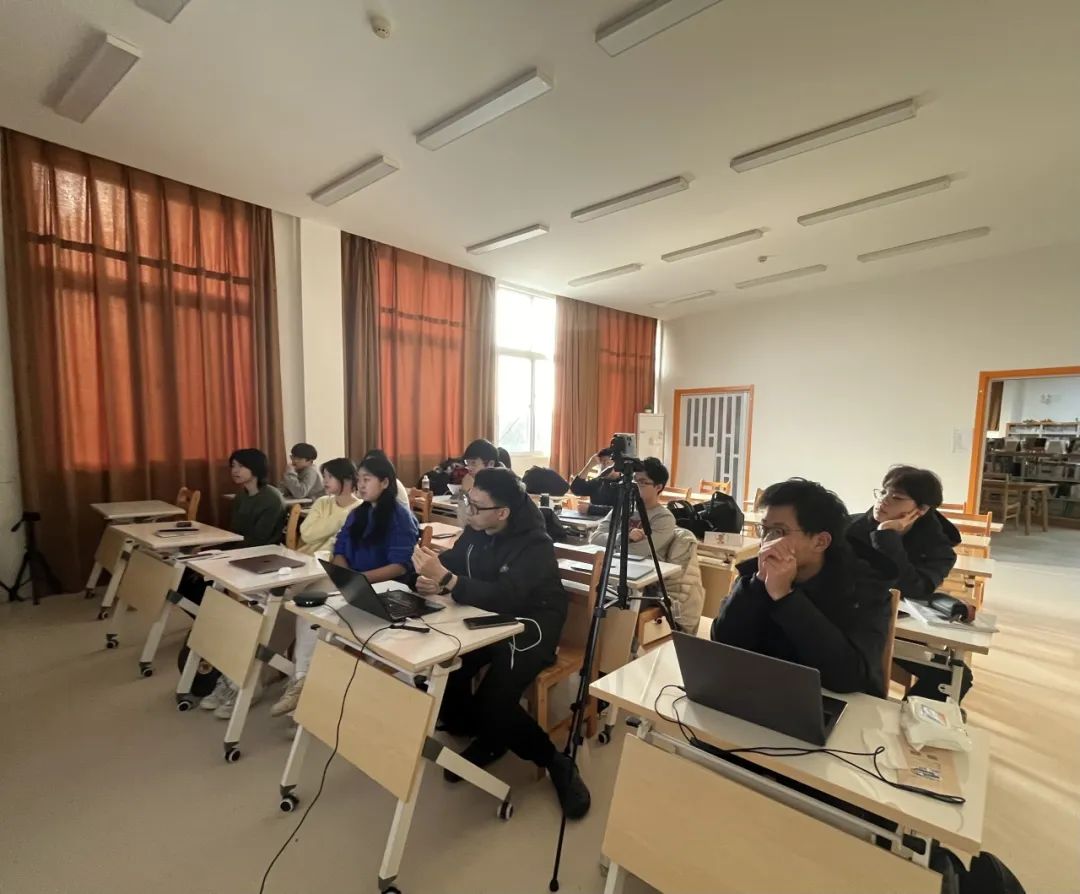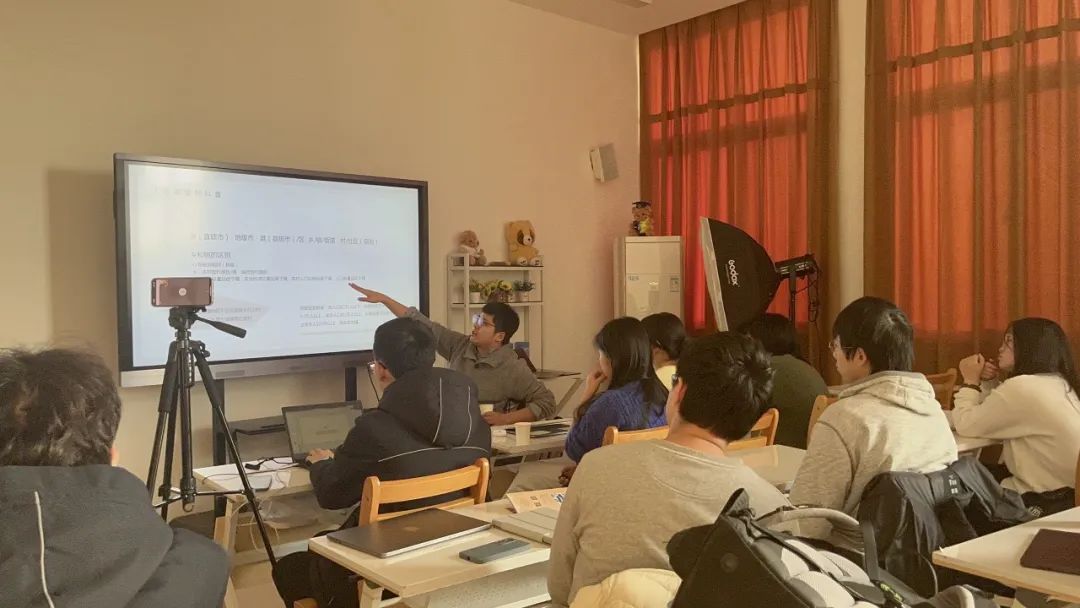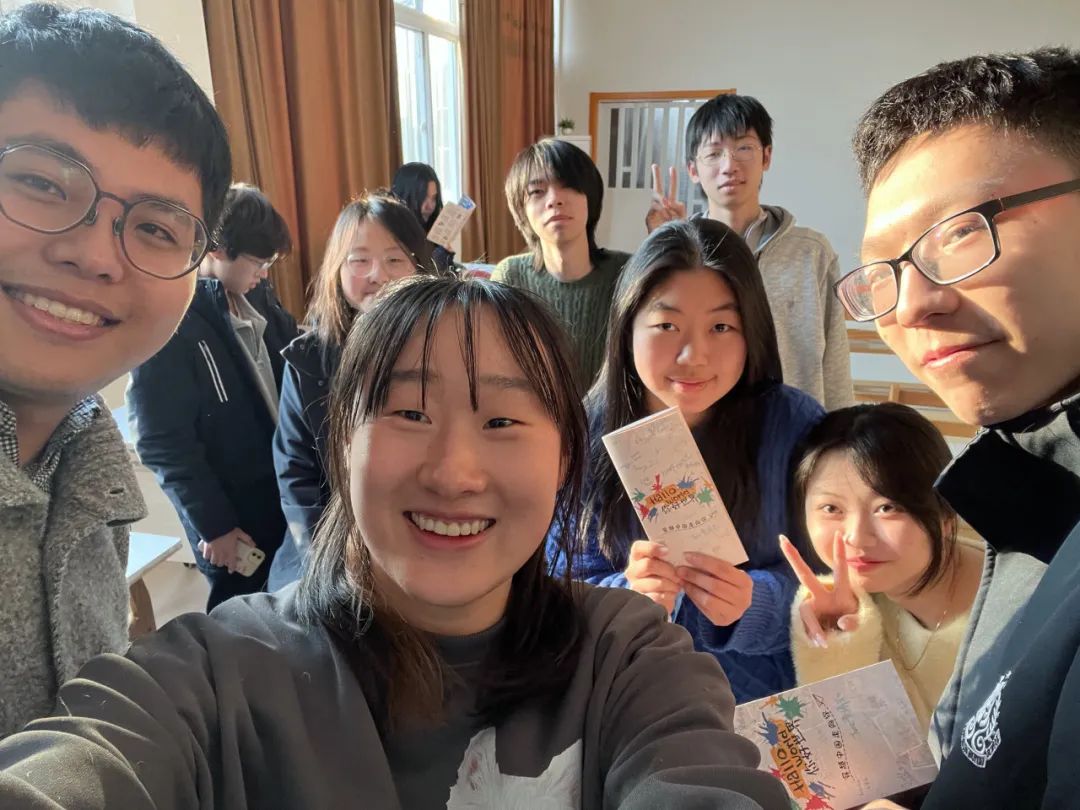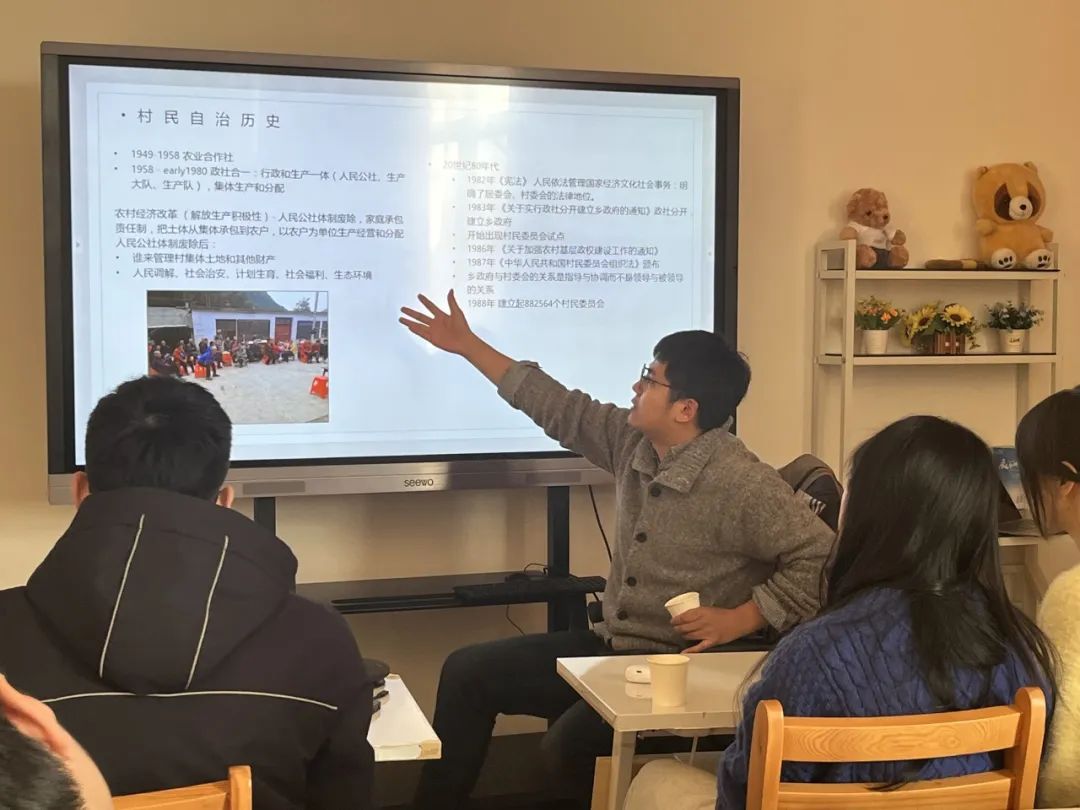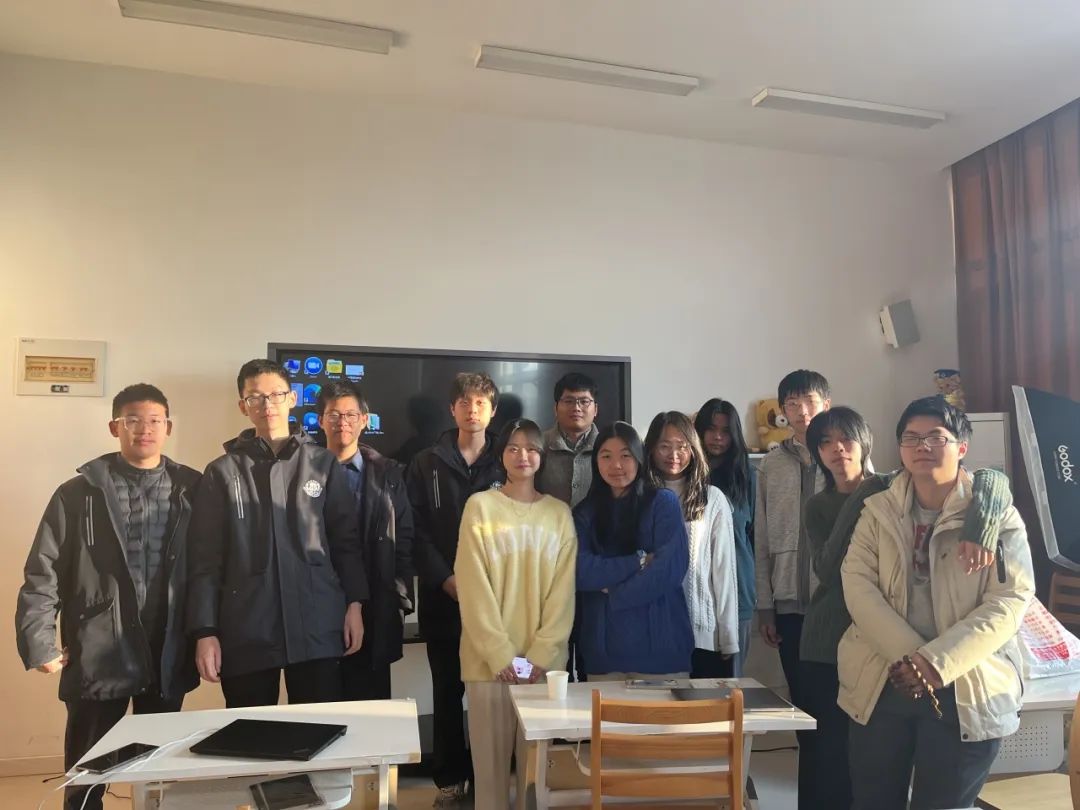At the beginning of the lecture, students raised their own understandings of the differences between rural and urban areas: "The family concept in rural areas is different, with residents placing more emphasis on blood relations." Comparing rural and urban differences, Jiahe further analyzed the current living conditions of rural children. Due to the emergence of the internet, high-frequency internet exposure has disrupted the traditional way of life, leading to the question of how to implement action in a rural area at the intersection of tradition and modernity.
Village management is a complex and intriguing topic. Jiahe introduced the concept of "rural governance" to students, where the national grassroots political power is located in townships in rural areas, with village self-governance implemented below townships. For example, each cadre in the village needs to connect with several impoverished households, conduct home visits, and address practical difficulties.
Curiosity arose among students about what a "乡" (township) is and what lies below it. Jiahe then provided an overview of administrative levels, from province, prefecture-level city, county/district, township, to village/community. With this understanding, students could better grasp the full names of the two villages HalloWorld will visit: "Qinggangpo Village, Tucheng Town, Xishui County, Zunyi City, Guizhou Province" and "Hongxin Village, Pingzheng Gelao Ethnic Township, Bozhou District, Zunyi City, Guizhou Province."
Why should we understand these common sense aspects? Jiahe explained that when going to the countryside, one cannot just bring enthusiasm to help solve villagers' problems. Consideration and understanding of a village's considerations, demands, and the actual situation are complex. Therefore, it is essential to comprehend the local residents' perspectives and practical needs, the concerns of village cadres, and the actual situation of the village. When communicating with villages, attention should be paid to local rules and order.
Regarding the issue of village self-governance, Jiahe also provided an explanation. The geographical pattern of rural areas determines that their self-governance is orderly. For example, during the annual villagers' meeting, discussions are held on issues such as land allocation.
The tide of history has a profound impact on contemporary society, helping us understand "how we got to where we are today." Jiahe emphasized that for international high school students, a profound understanding of China is crucial. We have too many viewpoints but sometimes lack more information. Where does the countryside stand amid waves of reform? What changes has it experienced? On the one hand, everyone should bravely express their thoughts, and on the other hand, continue to move forward and explore. In the practical experience of going to the countryside, efforts should be made to feel, understand, discuss, and reflect.
Finally, students received recommendations for relevant books from Jiahe – Small Town Hubbub: An Interpretation and Explanation of the Operation of a Township's Politics, In the Matter: The Chinese Government and Economic Development, Eight Crises: China's Real Experience 1949-2009, etc. After the lecture, students can use these books to understand models and experiences of rural development.

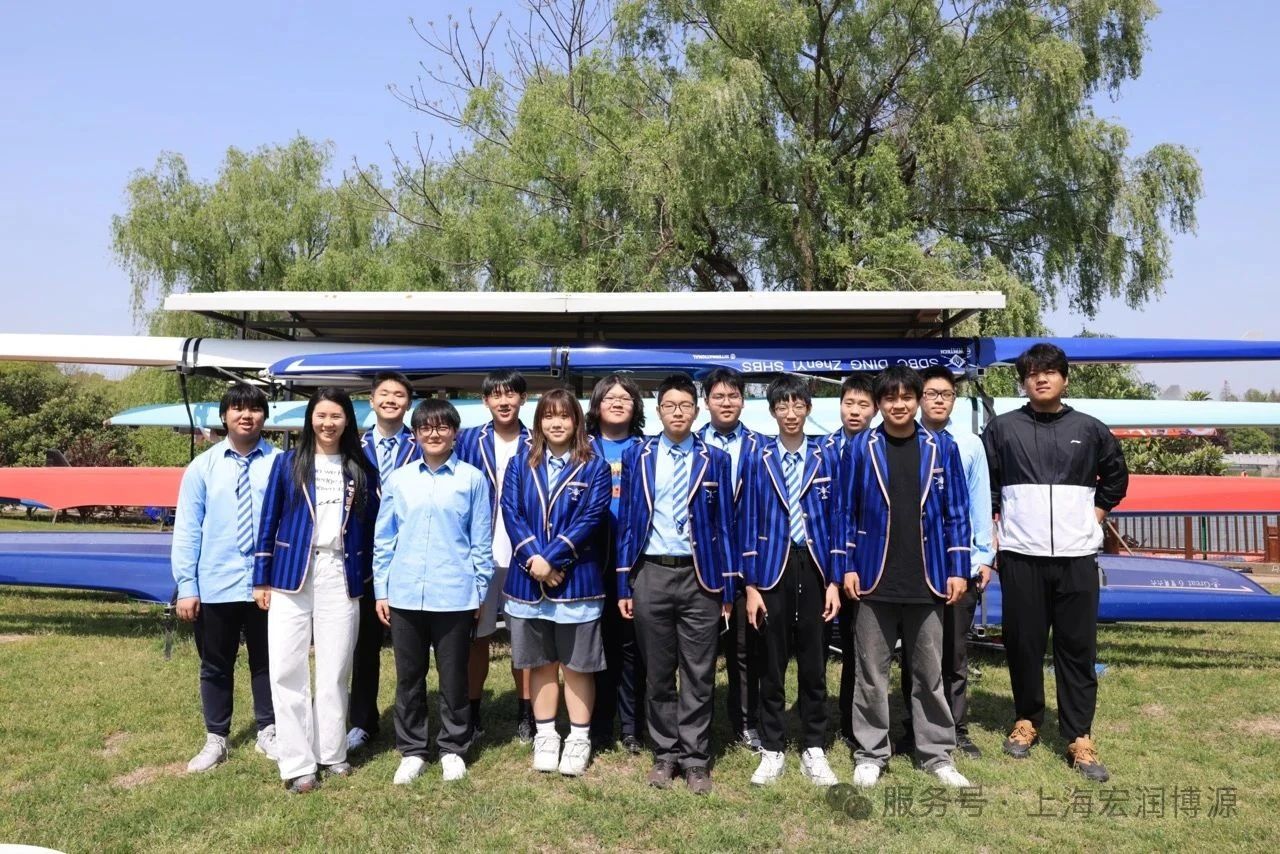 Hongrun Boyuan High School Rowing Academy | Shaping Youth Rowing Teams and Future Leaders2025-06-20
Hongrun Boyuan High School Rowing Academy | Shaping Youth Rowing Teams and Future Leaders2025-06-20
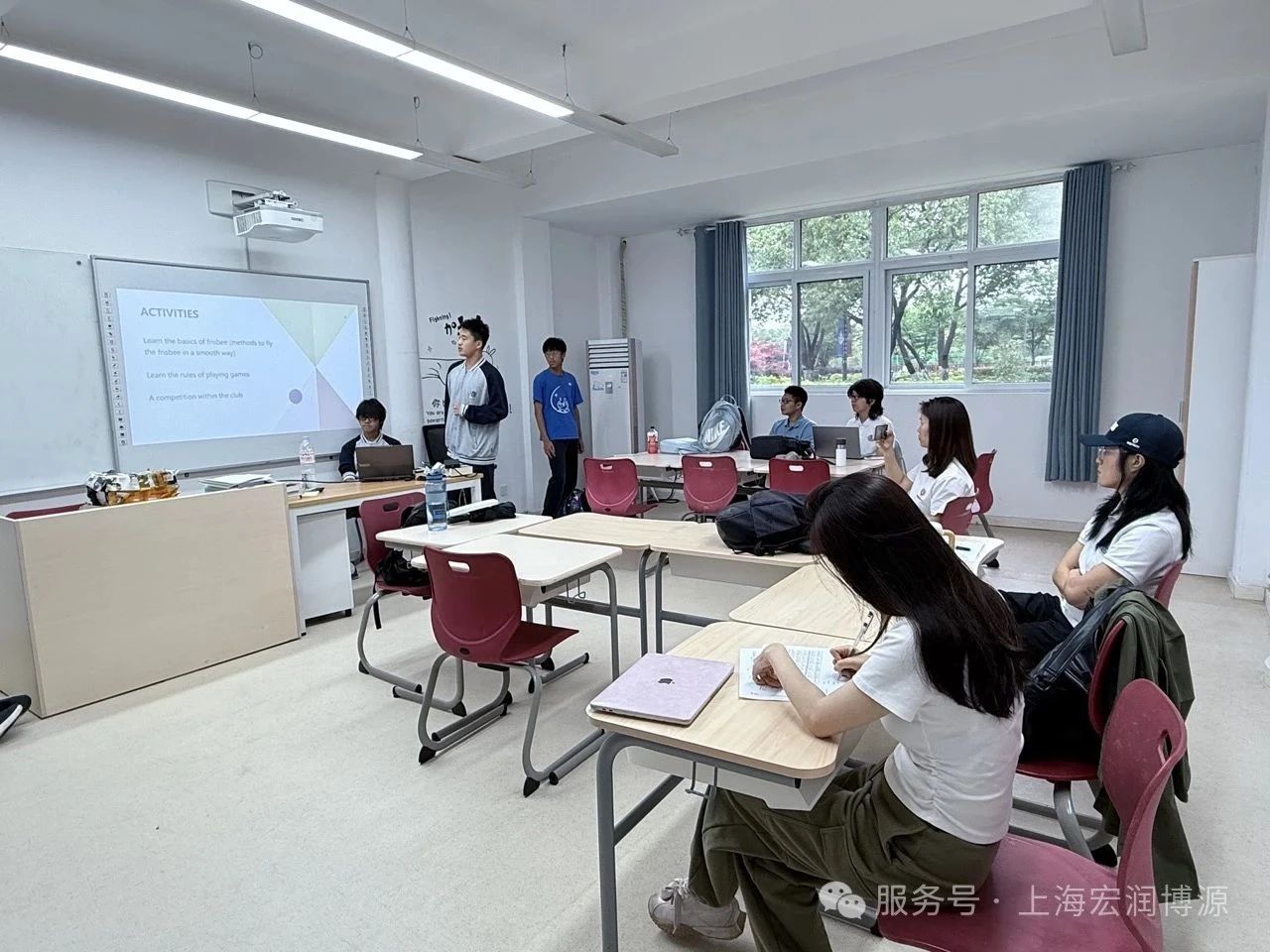 Hongrun Boyuan High School Event | A Flourishing of Talents and Vibrant Energy: 2024–2025 Second Semester Club Summary Report2025-06-18
Hongrun Boyuan High School Event | A Flourishing of Talents and Vibrant Energy: 2024–2025 Second Semester Club Summary Report2025-06-18
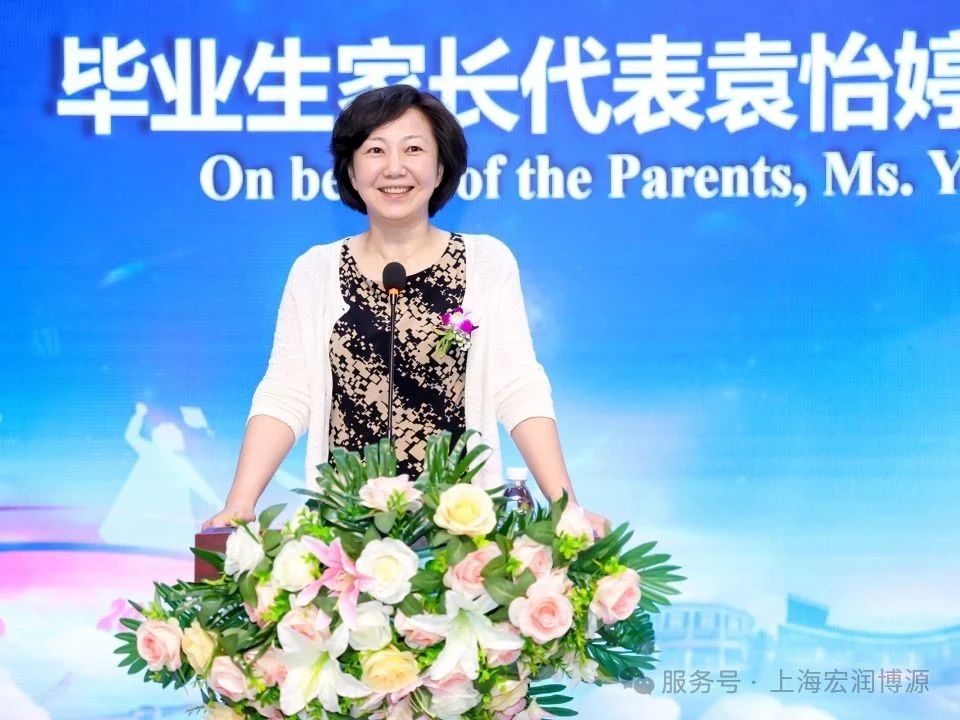 Commencement|Speech by Ms. Yuan Yiting, Parent Representative of the Graduates2025-06-06
Commencement|Speech by Ms. Yuan Yiting, Parent Representative of the Graduates2025-06-06